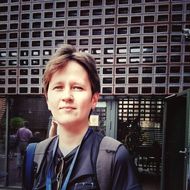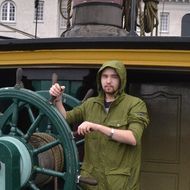Spatial Relations and Environment As Factors in the Development of Socio-Economic Practices, Infrastructures and Heritage in a National and Transnational Perspective
The study is related to the challenges that society constantly faces in the development of space and the natural environment. Economic practices as a whole are inseparable from interaction with space and natural resources. At the same time, there is no doubt that success and problems in this area have deep historical roots. In this regard, our project has a pronounced practical orientation. We create deep knowledge about the processes of interaction of human societies with nature, material objects and space in the past. Knowledge of how the structures of spatial relations were formed and changed determined the appearance of specific territories, their economic and socio-cultural potential. Therefore, this study focuses on the ways for the development of society in its interaction with the environment. The appeal to space in historical research has an established tradition, which was transformed in the course of the so-called “spatial turn” (LeFevre, 2000, 2015; Casey, 2007; Middell, Naumann, 2010, etc., as applied to the history of Russia, see Baron, 2008; Kivelson, 2012; Bassin et al., 2011; etc.).
Objectives of the research:
Our long-term project is aimed at studying the material component of spatial relations and the role of natural factors in the history of Russia in the longue durée perspective. In 2022, the project involves the inclusion of a transnational perspective, namely the border areas (USSR/Finland) and Svalbard. The goal of the project, as before, is to analyze the practices of interaction between institutions and communities, on the one hand, and natural material objects, taking into account the peculiarities of their spatial positioning, on the other. Although space certainly influences such objects, allowing them to be combined into complex systems, including infrastructures, they also "produce" a specific experience of space that is important for historical analysis.
- Using specific historical examples, this project continues developing a methodology for studying natural influences reflected in various spatial configurations and, having tested the application of this methodology on various cases from the history of Russia and the USSR, reach broader theoretical generalizations.
- Based on different spatial scales and localizations, this study analyzes how material objects (resources, infrastructures, heritage sites) influenced the production of specific experiences of creating, using and perceiving space.
The historical subjects selected for research include, but are not limited to:
- the role of natural factors and the organization of space in the economic history of Russia in the Early Modern period (based on the archives of monasteries and state institutions of the Russian North in the 16th-18th centuries);
- the influence of natural and climatic factors on commercial activity in Russian ports in the Baltic Sea in the 18th century;
- the emergence of the phenomenon of urban pedestrian traffic and the practices of safety, control and responsibility associated with this phenomenon (based on the history of Petrograd/Leningrad in the 1920s-1930s);
- the history of the organization of waste disposal infrastructures in Russian cities in the late imperial period;
- the incorporation of new urban areas into the space of Leningrad in the 1960s-1970s;
- the problem of technological transfers and border areas on the example of the development of iron ore complex and the construction of the city of Kostomuksha on the territory of the Karelian ASSR in the 1970s-1980s;
- conceptualization of backwardness and progress in the space of socialism;
- analysis of the program of Soviet geological research in Svalbard during the Cold War;
- ideas about biological resources in the context of international exhibitions of the late XIX - early XX centuries (on the example of fish and fishing);
- the experience of preserving the railway heritage by amateur and professional communities in the space of the late USSR.
Participants of the project

Research Fellow

Research Assistant
Senior Research Fellow, Laboratory for Environmental and Technological History
Senior Research Fellow

Junior Research Fellow
Research Fellow

Senior Research Fellow

Senior Research Fellow

Laboratory Assistant
Laboratory Assistant

Research Assistant

Research Assistant

Research Assistant

Research Fellow
Have you spotted a typo?
Highlight it, click Ctrl+Enter and send us a message. Thank you for your help!
To be used only for spelling or punctuation mistakes.





